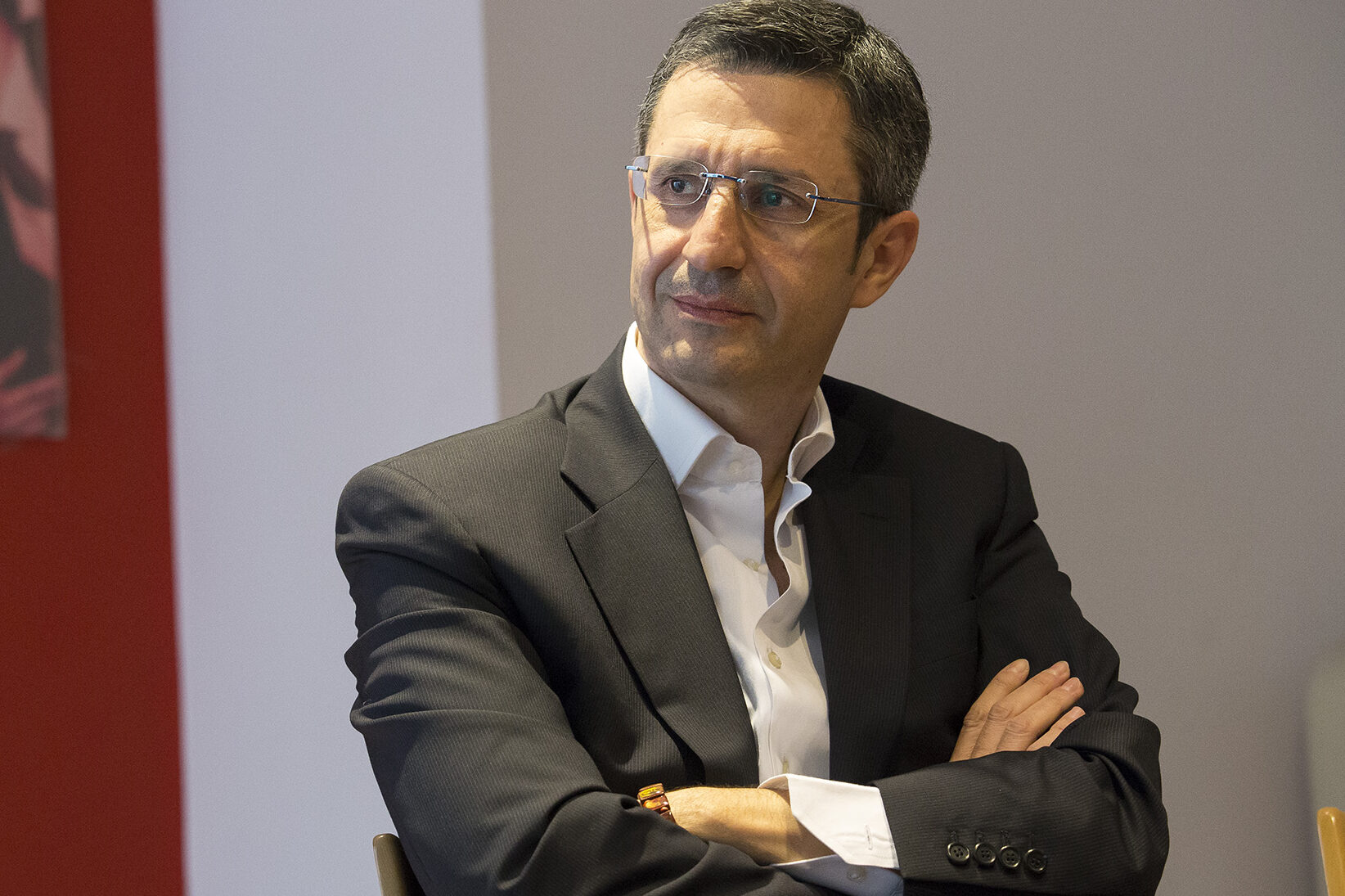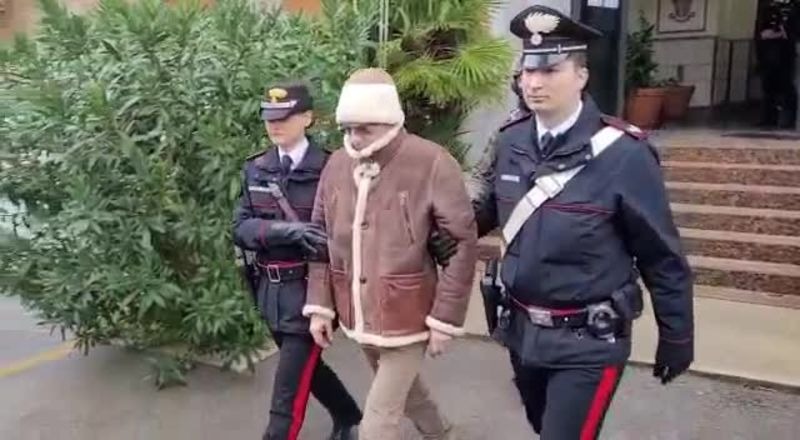Not fear, but consensus: the arrest of Messina Denaro and a silence that lasted 30 years
One of the first images of the arrest showed the mafia boss escorted by police but not handcuffed. A powerful metaphor of many media narratives who have contributed to paint a distorted picture of a dangerous criminal, who lived in luxury and protected by a code of silence for over 30 years. We spoke with Sebastiano Ardita, member of the Superior Council of the Judiciary (CSM, the Italian self-governing body of the judiciary) who has been involved in the front line in the fight against mafia
On 16 January 2023 mafia boss Mattia Messina Denaro was arrested in Sicily by Italian police, after being a fugitive since 1993. He is believed to be linked to dozens of murders – among them of judges Giovanni Falcone and Paolo Borsellino for which he was sentenced to life in prison in 2020 – including the kidnapping and strangling of a former mafia member turned collaborator’s 12 year-old son, whose body was dissolved in acid. Following his arrest, the world’s media paid particular attention to the context in which he was hiding and to the code of silence that had protected him to date. Over the days, his hiding places were identified, and more details of his lifestyle came to light. But what image of the mafia boss Mattia Messina Denaro has emerged? The narrative of a man who continued to live undisturbed in his own town for thirty years wearing designer clothes and luxury watches, even though he was on the world’s ten most wanted criminals list, risks portaing a hardened criminal almost as a “successful man”, especially in the eyes of those with a lack of historical memory of the massacres for which he is responsible. In contexts of cultural poverty, where the mafia is considered a substitute entity for the state, the fascination of the anti-hero a real risk for the youth if we consider that in Italy, according to estimates by Save the Children ONG, there are over one hundred thousand girls, boys and adolescents living in a municipalities dissolved due to infiltration by organized crime. We spoke to judge Sebastiano Ardita, a member of the Superior Council of the Judiciary (CSM, the Italian self-governing body of the judiciary) who has been involved in the front line in the fight against mafia and is author of books such as “Cosa Nostra S.P.A” (Paper First, 2020), an an essay on the economic pact between organized crime and the white-collar world, and “Al di sopra della legge” (“Above the law”) which investigates on how the mafia still rules from prison” (Solferino, 2022).

In a recent interview Salvatore Lupo, professor of contemporary history at the University of Palermo, said that «Messina Denaro was not the boss of bosses, nor the successor of Riina» and that therefore, we should not put too much emphasis on that news of his apprehension. So is it appropriate to talk about a “victory for the state” in the face of an arrest that took place after 30 years?
“It depends on your perspective. If we start from the idea that in the last thirty years we have not been able or did not want to find him, then there is good reason to be optimistic. But it is clear that we must try to understand why this inaction has lasted so long and under what cover. I would have expected many to have read Marco Bova’s book (“Latitante di stato”, Ponte alle grazie, 2021) so as to better undestand the context of this arrest and not to fall into clichés and triumphalism when commenting on the news. Thit was not the case. As far as I’m concerned, the arrest gives us the opportunity to confirm how silence and consent towards Cosa Nostra are still widespread in our territories, and how much the latter maintains strong relations with institutional powers. That said, behind every arrest of a mafia fugitive there is always a positive narrative that cannot and must not be debased”.

As you suggested in a recent interview, fighting against the mafia should not be limited to crime repression but instead entail an effort aimed at dismantling its socio-economic structure by providing people with real alternatives. Where should we start?
“Apprehending a criminal is indeed a repressive action, which can in itself be a tool to deconstruct the myth of powerful mafia bosses who manage to spend years in hiding. However, we will not be successful unless we address the problems of our more marginalized communities, where the state order is turned upside down. I refer to the gulf between people and Institutions, to the waste and misappropriation of public resources, to a self centred ruling class, more concerned with their careers and profits than with the needs of the people”.
Sebastiano Ardita
“In many social environments the mafia is considered to more reliable than the state: this is what made Denaro’s escape possible”
A few citizens of Castelvetrano (Matteo Messina Denaro hometown) appeared on national and local TV where they said the boss is “a kind man”, painting the image of a normal person. Some have even shown dissatisfaction with the arrest, sparking controversies among commentators. Considering that many places in rural Sicily are affected by cultural poverty, should have we handled this news with more care or maybe with a different approach?
“Some media outlets and public figures indulged in expressions of triumph. Representatives of the institutions have conducted themselves in a more responsible manner, explaining that the fight for the truth has just begun. Moreover, we need to direct to rooting out the causes of the “omertà” (silence) that made Messina Denaro’s 30 year escape possible: the degradation of many social environments where the mafia is considered to be a more reliable governing body than the state, and which allows criminals to rule more by consensus than by fear”.
In this sense, is the media responsible that a distorted view of the boss (who was not even handcuffed at the time of arrest, as if authorities wanted to grant him the honors of war) prevails over that of a heinous criminal?
“If Messina Denaro had been able to plan the PR campaign for his arrest, he could not have imagined it better. Not just the lack of handcuffs, but also the illness and the need for treatment, the selfie with a nurse, the smiles and the everyman attitude have sterilized – for those who have no memory of the massacres for which he is responsible – the figure of the fierce boss. All of this fits wonderfully into the phase of revisionism on the mafia, on its power and its dangerousness, and supports the battle against the 41bis (a harsh prison regime for specific crimes) and the life sentences without parole”.



